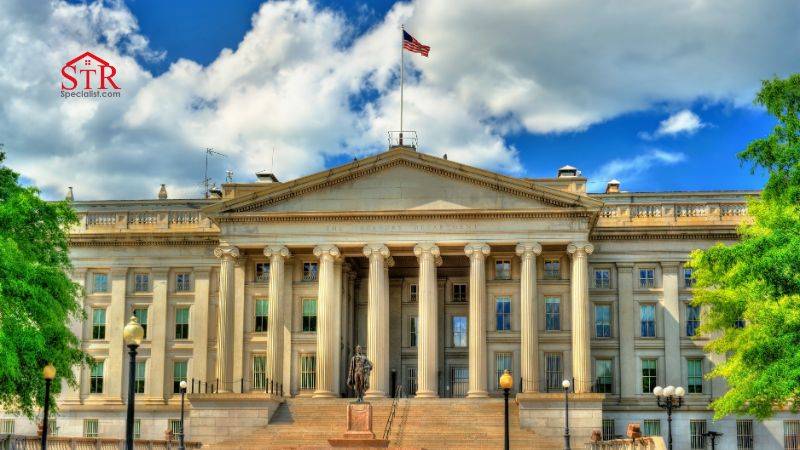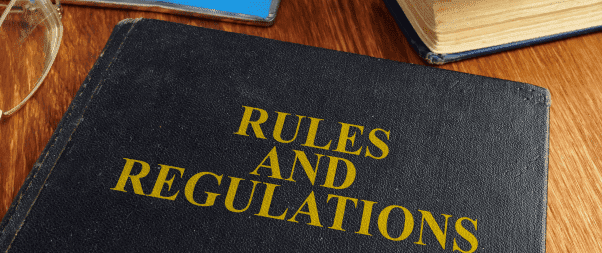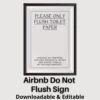
The United States, with its vast expanse and diverse opportunities, presents a plethora of prospects for budding investors interested in purchasing a property to list on Airbnb.
However, before venturing into the short-term rental market, it’s crucial to familiarize yourself with the local laws and regulations governing your area.
The challenge lies in the highly localized nature of these short-term rental laws, which can often be convoluted. Furthermore, certain municipalities might impose restrictions on short-term rentals in a bid to regulate the swift proliferation of Airbnb listings.
So, if the idea of transforming your property into a holiday rental has crossed your mind, this guide provides insight into various facets of existing state-specific Airbnb regulations.
We delve into the short-term rental laws that apply in well-known Airbnb investment destinations and shed light on specific regulations within popular vacation rental locales.
Moreover, our beginner’s guide to Airbnb hosting may prove to be a valuable resource. It encompasses all the fundamental steps required to excel as a short-term rental host.
Regulations for Airbnb: A State and City Perspective
Since its inception in 2008, Airbnb has significantly disrupted the vacation rental industry by providing travelers with cost-effective alternatives to traditional accommodations. For homeowners, the short-term rental platform has emerged as a lucrative means to supplement their income through a real estate side business.
However, an increasing number of states and cities throughout the US have been implementing stringent regulations on Airbnb and other vacation rentals, and these rules can differ significantly from one locale to another.
Familiarizing yourself with the prevailing short-term rental regulations in your city is pivotal for the prosperity of your enterprise. After establishing your business, consider employing vacation rental software such as Hospitable.com to streamline your operations.

Regulations for Airbnb in Florida
Under Florida’s state law, local authorities are barred from outrightly prohibiting short-term rentals or restricting the duration or frequency of rental stays.
This policy positions Florida as a favored destination for individuals keen on investing in vacation properties. However, county and city administrations maintain the authority to establish their own regulations to mitigate the potential adverse effects of vacation rentals on local neighborhoods.
Licensing requirements
In Florida, all vacation rentals, inclusive of Airbnbs, necessitate a license from the Florida Department of Business and Professional Regulation (DBPR).
If you plan on listing an entire unit for short-term rental more than thrice a year or advertise it as regularly available for guests, obtaining a DBPR license is mandatory.
Tax Obligations
- Income Tax: This tax is paid annually to both federal and state governments.
- State Sales Tax: Payable to the Florida Department of Revenue, the rate stands at 6% in Florida.
- County-imposed Sales Surtax: This rate differs based on the county. The specific county rates can be found on the DR-15DSS form.
- Local Option Transient Rental Tax: The rates for this tax also fluctuate among counties. You can find the county-specific rates and guidelines for reporting and payment on the DR-15TDT form.
Regulations for Short-Term Rentals in Kissimmee, FL
In Kissimmee, short-term rentals encompass guest stays that last less than six months. Operating a short-term rental business is permitted solely within designated zoning districts.
It’s advisable to liaise with the City of Kissimmee Planning Division to ascertain whether your proposed listing aligns with the zoning stipulations or usage definitions.
Additionally, property owners intending to embark on a short-term rental enterprise must secure a Business Tax Receipt prior to initiation.
Regulations for Short-Term Rentals in Miami, FL
In Miami, vacation rental properties listed as Estate or Low-Density Residential on the CDMP Land Use Map Plan face certain restrictions. The Responsible Party, typically the owner, must reside in the property for more than half the calendar year.
Regulations for Short-Term Rentals in New York State
At the state level, the New York State Multiple Dwelling Law governs short-term rentals, prohibiting them in residential multifamily buildings or “Class A” multiple dwellings.
However, renting out a room within most apartment buildings could be permissible if the permanent resident remains present during the guest’s stay.
Hence, part-property rentals that are owner-occupied may be a feasible option if the entire apartment is accessible to the paying guest.
Licensing and Taxes
While there are no uniform requirements for short-term rental licenses and permits across the state, most cities and towns uphold stringent licensing regulations for vacation rentals.
Regulations for Short-Term Rentals in New York City
New York City enforces strict short-term rental regulations as outlined in the NYS Multiple Dwelling Law, the NYC Administrative Code, and the New York City Zoning Resolution.
These regulations prohibit the rental of an entire apartment or home for less than 30 days, irrespective of ownership or residency in the building. Hosts must be present throughout a guest’s stay if it is less than 30 days and can accommodate only two paying guests at a time.
As of January 9, 2022, Local Law 18, or the Short-Term Rental Registration Law, has been implemented in New York City. This law necessitates short-term rental hosts to register with the Office of Special Enforcement (OSE).
The NYC Local Law 18 also disallows OTA platforms like Airbnb and Vrbo from conducting transactions for unregistered listings.
Airbnb Regulations in Texas
Texas, being the fourth most visited state in the US, employs minimal state-level regulations for short-term rentals, permitting city governments to establish their laws and regulations.
With high demand for vacation rentals, affordable property prices, and a business-friendly environment, Texas presents tremendous opportunities for running a prosperous Airbnb business. However, a thorough understanding of state and city-level laws and regulations is vital.

Licensing and Taxes in Texas
At the state level, Texas doesn’t mandate obtaining a license to operate a vacation rental business. However, several major cities do have specific licensing prerequisites, so it’s essential to verify these before advertising your property on platforms like Airbnb, Vrbo, or Booking.com.
Owners of Short-Term Rental properties in Texas are required to remit two categories of taxes:
State Hotel Occupancy Tax:
- Charged at 6%, this tax is collected by the Texas Comptroller’s Office.
- Local Lodging Tax: This tax is gathered by local tax authorities.
Regulations for Short-Term Rentals in Dallas, TX
As of now, Dallas doesn’t have any specific short-term rental laws except for taxation purposes. However, heated discussions have been underway among the city’s legislative authorities for some time.
The Dallas City Council members are deliberating over proposed changes to the city code and zoning that could potentially outlaw short-term rentals in residential areas, while permitting them in commercial zones.
Regulations for Airbnb in California
Numerous cities in California impose restrictions on short-term rentals, with some, like Irvine and Temecula, issuing outright bans. A majority of the cities necessitate hosts to register their units and secure a license or a permit.
Regulations for Short-Term Rentals in Los Angeles, CA
In 2019, Los Angeles introduced the Home-Sharing Ordinance that confines short-term rentals to the host’s primary residence, defined as the location where the host resides for over six months annually.
This type of home-sharing is also restricted to 120 days per year, and hosts are required to register with the city. Each host is permitted to operate only one short-term rental property.
Regulations for Vacation Rentals in Palm Springs, CA
To legally operate a short-term rental in Palm Springs, hosts must obtain a Vacation Rental or Homeshare Registration Certificate and a Transient Occupancy Tax permit.
The property owner must also enter into a written contract with a designated responsible individual who is at least 25 years old. This person is tasked with personally greeting guests and apprising them of the local rules and regulations.
Occupancy is capped at 2 adult overnight guests per bedroom, and there is a limit of one vehicle per bedroom.
In November 2022, Palm Springs passed an ordinance limiting the proportion of short-term rentals in residential areas to 20% of homes. This newly adopted law also decreases the number of days a host can rent out their short-term rental property from 36 to 26 annually.
In Conclusion
The regulations governing Airbnb and short-term rentals in the US are often subject to frequent and localized changes, with some cities imposing highly restrictive rules.
As such, if you’re contemplating investing in a short-term rental property, it’s essential to perform thorough due diligence and research into state-specific Airbnb regulations to identify cities with minimal Airbnb legal complications.
Please note: This information does not constitute legal advice. If you have inquiries about Airbnb regulations in your jurisdiction, it is advised to reach out to your local government or consult a local attorney to ensure full compliance with any applicable laws at both the city and state levels.
You may also like:
Essential Items For Your Airbnb Bedroom Shopping List
Deciphering Airbnb Scams: A Guide to Identification and Self-Protection
Elevating Your Airbnb’s Aesthetic with Cost-Effective, Luxury Wall Art









